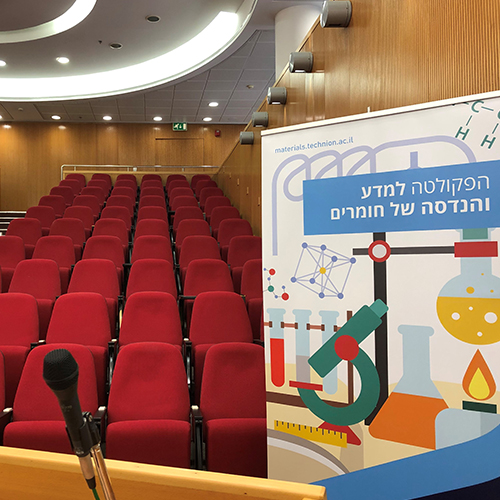
Prof. Alexander R Umantsev
14/03/2024
אודיטוריום ע"ש דויד וואנג, בניין מידן, קומה 3
14:30
Two important trends are taking place simultaneously in the community of materials scientists. On one hand, after accumulating substantial knowledge of phase transformations, researchers began paying more attention to the problem of damage and reliability of the materials in service. On the other hand, mechanicians realized the critical importance of microstructure in the problem of material failure. In this presentation I will introduce a novel approach to plasticity, damage and failure which includes all major components of the mechanical behavior of ductile materials and covers all regimes of viscoplastic tensile/compressive loading and unloading [1,2]. The approach is based on the concepts of an internal damage parameter and free energy and has the attributes of both rate-dependent and rate-independent plasticity. The ultimate failure of a specimen is defined as a point of critical value for the damage parameter. The model describes diverse phenomena of Lüders stress, creep, internal friction, and Hall-Petch effect on the same self-consistent basis. The case of dislocation mediated plasticity is treated with particular care. In the presentation, I will analyze the phenomenon of fatigue and identify the low-cycle and high-cycle regimes of these processes. The approach allowed me to derive a Paris-type equation for the rate of degradation of the specimen as a function of the cyclic plastic work and to find a Coffin-Manson-type power-law relation between the plastic strain amplitude and the number of load reversals to failure.


